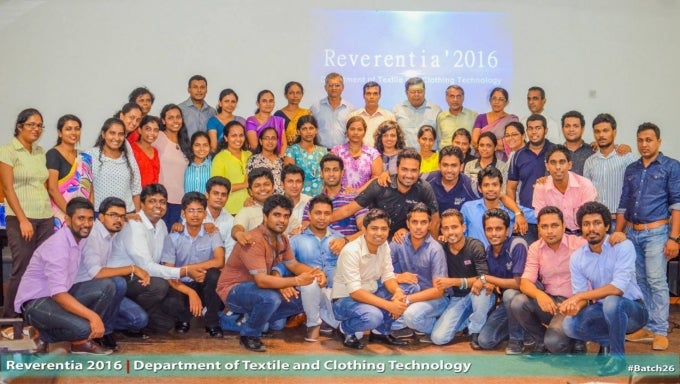
Imagine a school that teaches knowledge and provides hands-on training. A place where students express confidence in their skills, and are excited to make a difference in their future jobs. A bastion of confidence and optimism, where 100% of graduating students have jobs lined up before graduation.
Sounds too good to be true? I found this haven at the University of Moratuwa’s Department of Textile and Clothing Technology, supported by the Higher Education for the 21st Century Project (HETC), which is designed to modernize education by its increasing its quality and relevance. 24-year-old Malaka Perera, who is graduating next month, told me how the program has helped him build a foundation for his career. “The program taught me how to deal with people, along with communications and problem solving skills that I used during my internship. As a result, finding a job was quite easy.”
Sri Lankans have enjoyed the benefits of broad education access for decades, which has allowed the country to build human capital to rise and become a middle income country. However, as a country with rising aspirations in an increasingly globalized world and competitive region, the quality and relevance of its education system is key for the country to maintain its edge and reach new heights.
At Moratuwa University, this approach has changed the design and implementation of the curriculum. The faculty conducted an assessment on the needs of employers and their desired skills for students. Companies noted that while students had knowledge, they lacked hands-on skills and a positive attitude. In response, the schools reorganized the curriculum to be more useful, connected students with mentors from the alumni association, and incorporated a 6 month internship during their 3rd year of study to gain practical knowledge and hands-on experience.
This has created a direct link and built trust between industries and the institution so both sides have a better understanding of student abilities and areas for improvement. Based on the assessment, the curriculum has added attitude and leadership development programs which have enabled students to be more independent, self-driven, and motivated for their careers. ”I worked on 4 projects at my internship at MAS innovations incorporating electronics into clothing, creating what are known as wearable technologies,” said Perera.
As the new report Stitches to Riches highlights this week, Sri Lanka has the potential to be a regional clothing manufacturing hub to create more jobs and increase opportunities. Recommendations include expanding into new products that require higher skills, attracting more investment, exporting to new destinations as well as encouraging domestic growth and innovation of the industry.
At Moratuwa University, HETC seemed perfectly complementary to these goals in building skills, value, and innovation to realize the Sri Lanka’s development potential. For Perera, it’s inspired new possibilities. “My dream is to have my own company in 10 years as its CEO.”


Join the Conversation